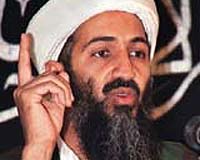 |
Washington (AFP) April 11, 2010 The landmark nuclear arms reduction treaty President Barack Obama signed with former Cold War foe Russia may have to wait until next year for Senate approval, a Republican lawmaker said Sunday. "There's not a chance the treaty will be approved this year," Senator Lamar Alexander told Fox News Sunday, noting that "it took a year and a half to approve the START I treaty," the 1991 pact which expired last December. The comment was among the strongest indications yet of a potential political fight on Capitol Hill over the new Strategic Arms Reduction Treaty signed by Obama and his Russian counterpart Dmitry Medvedev earlier this week. Top Democratic senators have said they will plan hearings on the treaty once Obama submits in in early May, with the aim of getting it ratified this year. With November mid-term elections on the horizon, a looming debate over Obama's impending nomination of a new Supreme Court justice, and a bitterly partisan climate in Washington, prospects for doing so were unclear, and Republicans have signaled strong concerns over the new accord. "With the Supreme Court pushing to the front of the agenda in the Senate and jobs, terror and debt being our major issues we should be worrying about, this is a treaty for next year," Alexander said. Treaty ratification needs 67 votes, but Democrats and their two independent allies hold only 59 seats in the 100-member Senate, meaning they will need to rally at least eight Republicans. Republicans have warned that Obama must submit a comprehensive plan for upgrading US nuclear laboratories and modernizing the US nuclear arsenal before the Senate takes up the treaty, and caution they will oppose the pact if they think it will hamper US missile defense plans bitterly opposed by Russia. Independent Senator Joseph Lieberman echoed the concerns. "In my opinion, as we reduce the number of nuclear warheads America has in a world that is still dangerous, very dangerous, and in which the threat of the spread of nuclear powers, particularly Iran, grows every day, we have to make darn sure that our nuclear warheads are capable, are modern," he told Fox. "I'm going to be real hesitant to vote for this treaty unless we have a commitment from the administration that they're prepared to modernize our nuclear stockpile," Lieberman said. The new START cuts the number of deployed warheads by 30 percent from the levels set in the last major US-Russian disarmament treaty in 2002, specifying limits of 1,550 nuclear warheads for each of the two countries. Many of the US warheads are decades old.
earlier related report Both Clinton and Defense Secretary Robert Gates said in joint television interviews that Iran and North Korea represented exceptions to the limits on a US nuclear response, as both have defied UN resolutions on their atomic programs. "We leave ourselves a lot of room for contingencies," Clinton said. "If we can prove that a biological attack originated in a country that attacked us, then all bets are off," Clinton said in an interview with CBS's "Face the Nation." Clinton was referring to a new US nuclear policy unveiled last week that restricts the use of atomic weapons against non-nuclear states that comply with the Nuclear Non-Proliferation Treaty (NPT). Asked why Iran and North Korea were considered exceptions, Gates said: "Well, because they're not in compliance with the nuclear non-proliferation treaty. So for them, all bets are off. All the options are on table." Clinton and Gates said a new arms control deal with Russia and the revised nuclear policy would bolster President Barack Obama's diplomatic leverage as he seeks to isolate Iran and North Korea over their nuclear programs. Both cabinet officers rejected criticism from some Republicans in Congress that Obama's approach had sent a signal of weakness, and that cuts to the nuclear arms stockpile undermined US "deterrence." "We have still a very powerful nuclear arsenal," Gates told NBC's "Meet the Press." Obama's nuclear policy "sets forth a process by which we will be able to modernize our nuclear stockpile to make it more reliable: safer and more secure and effective." he said. Apart from nuclear weapons, the US military was building up missile defense systems and investing in long-range missiles armed with conventional warheads -- known as "prompt global strike," Gates said. "We have in addition to the nuclear deterrent today, a couple of things we didn't have in the Soviet days," he said.
Share This Article With Planet Earth
Related Links Learn about nuclear weapons doctrine and defense at SpaceWar.com Learn about missile defense at SpaceWar.com All about missiles at SpaceWar.com Learn about the Superpowers of the 21st Century at SpaceWar.com
 How real is the threat of 'nuclear terrorism'?
How real is the threat of 'nuclear terrorism'?Washington (AFP) April 11, 2010 The nightmare scenario of a mushroom cloud over a major city has led US President Barack Obama to declare "nuclear terrorism" as the ultimate threat. But experts are divided over the nature of the threat, with skeptics questioning the likelihood that extremists could manage to acquire, build or detonate a nuclear device. "A 10-kiloton nuclear bomb detonated in Times Square could kill a m ... read more |
|
| The content herein, unless otherwise known to be public domain, are Copyright 1995-2010 - SpaceDaily. AFP and UPI Wire Stories are copyright Agence France-Presse and United Press International. ESA Portal Reports are copyright European Space Agency. All NASA sourced material is public domain. Additional copyrights may apply in whole or part to other bona fide parties. Advertising does not imply endorsement,agreement or approval of any opinions, statements or information provided by SpaceDaily on any Web page published or hosted by SpaceDaily. Privacy Statement |